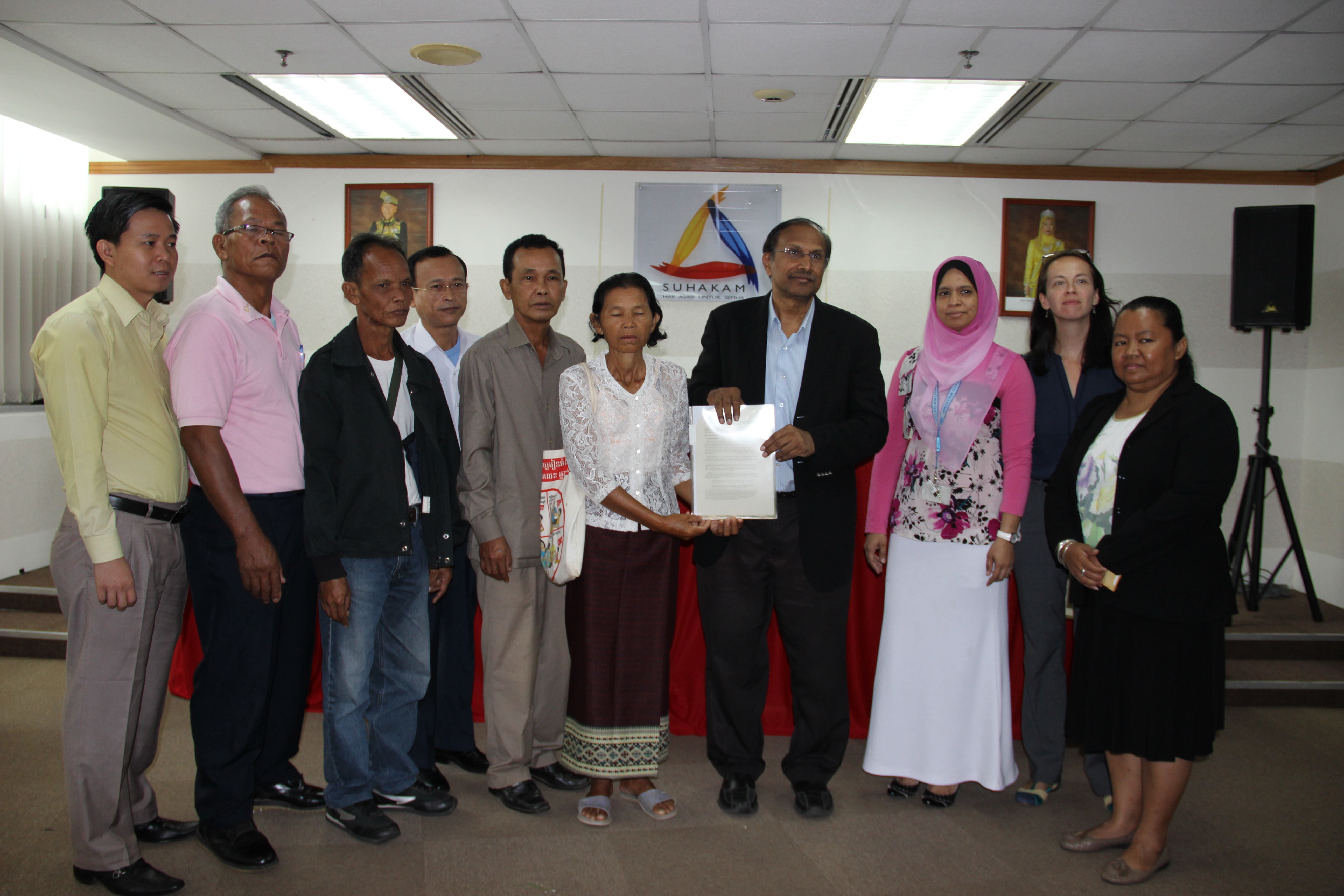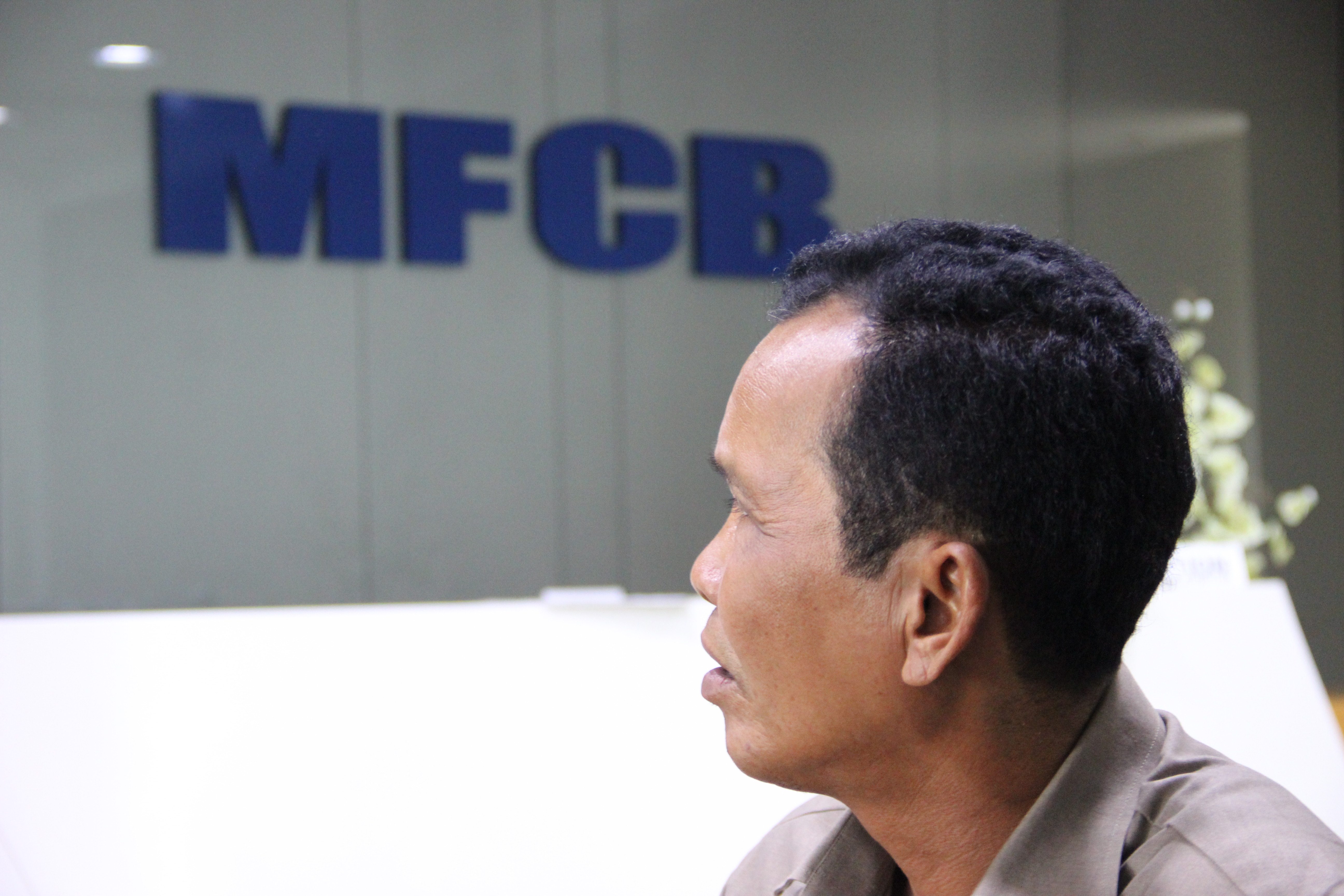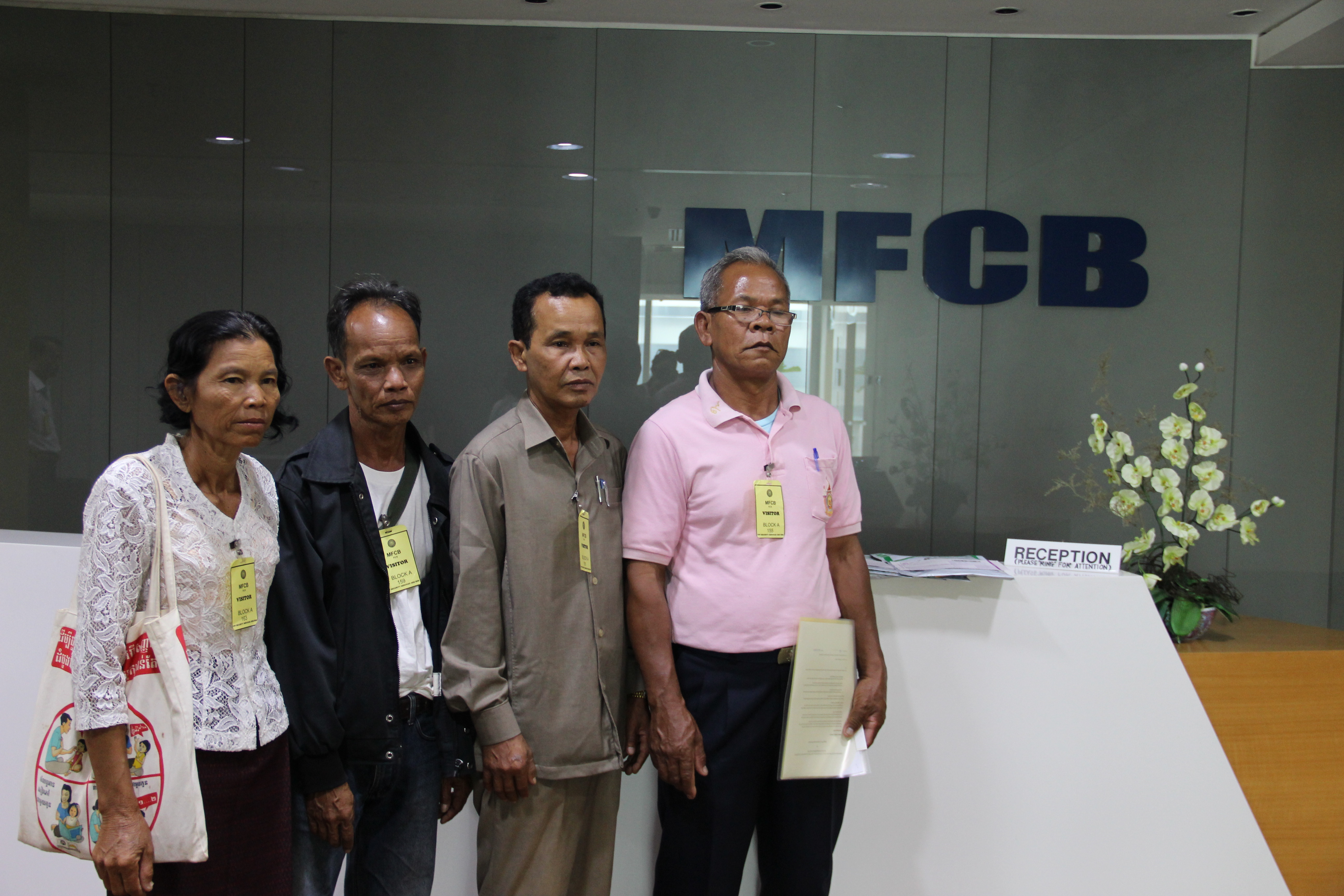Location: Kuala Lumpur, Malaysia
A coalition of local, regional and international NGOs, filed a complaint today with the Human Rights Commission of Malaysia (SUHAKAM), requesting investigation of the impacts of the Malaysian-built Don Sahong Dam project on behalf of Thai and Cambodian communities faced with losing their main food source and the extinction of an endangered dolphin population. The complaint asks SUHAKAM to ensure that the Malaysian project developer, Mega First Corporation Berhad, complies with international human rights standards, including the responsibility to respect the rights to life and livelihood and the obligation to meaningfully engage with and inform affected communities.
The coalition includes Cambodian Rural Development Team (Cambodia), Community Resource Centre (Thailand), EarthRights International (USA), International Rivers (USA), NGO Forum on Cambodia (Cambodia) and Northeastern Rural Development (Cambodia).
Mega First is building the Don Sahong Dam on the Mekong River in Lao PDR, less than two kilometers upstream from Cambodia’s Stung Treng province. The dam will entirely block the main channel of the Mekong that provides year-round fish passage through the Khone Falls area. Mekong fish are highly migratory, and blocking this key channel could devastate fish populations. Professor Ian Baird, an expert in Southeast Asian geography and ecology at the University of Wisconsin-Madison, notes, “Unless the impacts on fish migrations are fully mitigated, and it is unclear if that is possible, the Don Sahong dam can be expected to significantly reduce the number of migratory fish species that move between Vietnam, Cambodia, Laos and Thailand.”
Fisheries are at the center of life for many Thai and Cambodian communities. Fish are the essential source of protein for most Mekong communities – communities that already live precariously. For example, in Stung Treng province, 45% of children are already malnourished. Yet, Mega First has done almost no investigation of how the disruption of fish will harm these communities.
“Most of my people fish as a way of life,” said Huot Seng, the vice-chief of Loe village in Preah Romkel commune, Stung Treng province. “It is how they feed their family and earn a living. But, when the company comes to build the Don Sahong Project, they never ask about fish. They just tell me there will be no problem.” Despite these substantial risks and repeated attempts by NGOs to engage with the company, Mega First has failed to provide any response.
Another major source of livelihoods in Stung Treng is eco-tourism to see the last remaining Irrawaddy dolphins in the Mekong River. An isolated pod of this critically endangered population, consisting of six dolphins confined to a pool just downstream of the dam site, will almost certainly be destroyed. Only about 85 dolphins total are believed to remain in the Mekong, and, like the fish they eat, the dolphins migrate through the Khone Falls area and may not survive the dam.
Mega First has not given communities any information on how – or whether – it intends to address concerns about these impacts. Mega First has offered little evidence that their proposed mitigation measures will work, creating an unacceptable risk that the dam will destroy the livelihoods and threaten the lives of upstream and downstream Mekong communities.
Corporate accountability in Lao PDR is also a challenge. “The Don Sahong Project is representative of what is happening across much of Southeast Asia: Large scale development projects, funded and owned by foreign companies, are being developed without the participation of affected communities and in countries where domestic accountability measures are weak,” said EarthRights International lawyer Tanja Venisnik. SUHAKAM has the ability to investigate Mega First’s activities and can be an important lever for ensuring their human rights compliance. “We hope that this action will encourage Malaysian companies to take responsibility for their actions when operating abroad. For Mega First specifically, we hope that they will chose to cancel the project all together if these necessary studies are not carried out and mitigation measures are not sufficiently proven,” she added.



Cambodian Rural Development Team (CRDT) is a rural development NGO that works alongside poor vulnerable communities in Northeast Cambodia, and are committed to their vision for “A Cambodia free of poverty and environmental degradation.” This is achieved through an integrated, participatory, community based approach, focusing on food security, income generation, market development, water and sanitation, renewable energy, climate change adaptation, environmental education and waste-management. More information on CRDT is available at http://www.crdt.org.kh
Community Resource Centre is a non-governmental organization committed to protecting and promoting human rights, community right and the environment. More information on CRC is available at http://crcthai.blogspot.com.
EarthRights International (ERI) is a nongovernmental, nonprofit organization that combines the power of law and the power of people in defense of human rights and the environment, which we define as "earth rights." We specialize in fact-finding, legal actions against perpetrators of earth rights abuses, training grassroots and community leaders, and advocacy campaigns, and have offices in Southeast Asia, the United States and Peru. More information on ERI is available at https://www.earthrights.org.
International Rivers works to stop destructive dams, improve decision-making processes in the water and energy sectors, and promote water and energy solutions for a just and sustainable world. Since 1994 International Rivers has been working to protect the Mekong River Basin. As an active member of the Save the Mekong Coalition, International Rivers works with partners in the region to advocate against destructive dams on the Mekong River and promote more sensible options for meeting the region’s energy and development needs. More information on International Rivers is available at: http://www.internationalrivers.org.
NGO Forum on Cambodia works to improve life for poor and vulnerable people in Cambodia. It is a membership organisation that builds NGO cooperation and capacity, supporting NGO networks and other civil society organizations to engage in policy dialogue, debate and advocacy. The goal of NGO Forum is that the rights of the poor and vulnerable are recognized and supported by the policies and practices of Cambodia’s government and development partners, and the wider community. More information on NGO Forum is available at: http://www.ngoforum.org.kh.
Northeastern Rural Development (NRD) is a non-government non-profit organization which focuses on developing rural areas in Cambodia, especially in ethnic minorities’ communities. NRD encourages people and community based organizations (CBOs), as well as local authorities to empower each other and respect human rights. NRD also provides materials and technical supported to indigenous women and vulnerable people to improve their livelihood and dignity. More information on NRD is available at http://www.nrdo.org/






